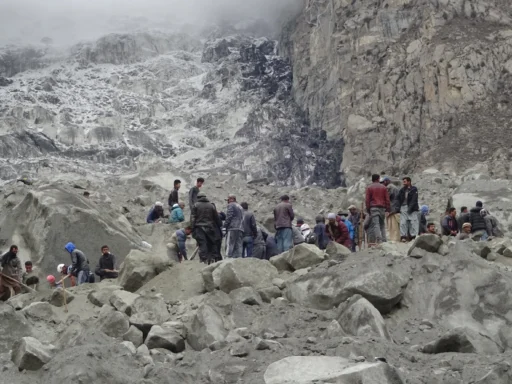Argentina is at a pivotal juncture as soaring poverty levels continue to shape its socio-political landscape. Despite the staggering challenges, President Javier Milei has garnered significant support, but the complexities of Argentina’s economy may test his leadership as the “honeymoon period” wanes. This article delves into Argentina’s economic turmoil, the root causes of its poverty crisis, and the political resilience of Javier Milei, presenting an in-depth analysis of what the future holds for the nation.
The Current Economic Reality in Argentina
Escalating Poverty Rates: A Dire Situation
Argentina’s poverty rate has exceeded 40%, with urban areas seeing particularly severe impacts. Over 18 million people are living below the poverty line, a situation exacerbated by spiraling inflation and unemployment. Many families struggle to afford basic necessities, with food insecurity becoming a nationwide concern.
Factors driving this crisis include:
- Hyperinflation, currently surpassing 120% annually.
- Currency devaluation, weakening the peso and eroding purchasing power.
- Declining real wages across various sectors.
- Structural unemployment due to stagnation in key industries.
The Burden of Inflation on Households
Inflation has not only reduced the value of salaries but has also fueled social unrest. Essential goods like bread, milk, and cooking oil have become unaffordable for many. Families are forced to make tough choices, prioritizing survival over education and healthcare.
Javier Milei’s Rise Amidst Turmoil
The Appeal of Libertarian Economics
President Milei’s libertarian approach to governance, characterized by his promise to slash public spending and dollarize the economy, has resonated with millions of Argentinians disillusioned by traditional political elites. His outspoken rhetoric and populist policies have positioned him as a figure of hope for those desperate for change.
Key tenets of Milei’s economic plan include:
- Privatizing inefficient public enterprises to reduce fiscal deficits.
- Implementing dollarization to stabilize the economy and combat inflation.
- Reducing taxes to stimulate private sector growth.
Milei’s Popularity: Why It Endures
Despite the economic hardships, Milei’s approval ratings remain robust. His unapologetic criticism of Argentina’s political establishment and commitment to libertarian reforms have earned him a loyal following. However, this support may falter as the realities of his policies come into play.

Challenges to Milei’s Agenda
Political Opposition and Institutional Barriers
Milei faces resistance from opposition parties, labor unions, and public sector advocates, making it challenging to implement sweeping reforms. Legislative gridlock may delay crucial policies, further testing his administration’s credibility.
The Risks of Dollarization
Economists warn that dollarizing the economy could:
- Undermine monetary sovereignty.
- Worsen inequality by disproportionately benefiting wealthier classes.
- Exacerbate unemployment as local industries struggle to compete globally.
Social Backlash Against Austerity
Milei’s proposed austerity measures, such as cutting subsidies for transportation and energy, are likely to spark protests. The potential reduction in public services could deepen societal divisions, threatening the stability of his administration.
The Path Forward: Navigating a Fragile Future
Building Social Trust
Milei’s government must prioritize transparency and engage with citizens to foster trust. Balancing fiscal discipline with social welfare programs could mitigate the immediate impact of austerity measures.
Strengthening Institutional Frameworks
To ensure the success of reforms, Milei’s administration needs to strengthen Argentina’s institutional frameworks. Enhancing the rule of law, combating corruption, and improving regulatory mechanisms will attract foreign investment and support long-term growth.
Conclusion
Argentina stands at a crossroads, grappling with unprecedented economic and social challenges. President Javier Milei’s administration holds the promise of transformative reforms but faces significant hurdles in their implementation. The coming months will be critical in determining whether his libertarian agenda can deliver sustainable solutions or if public disillusionment will signal the end of his political momentum. As Argentina navigates this complex period, the resilience of its people and institutions will be put to the ultimate test.
Source : The Conversation




